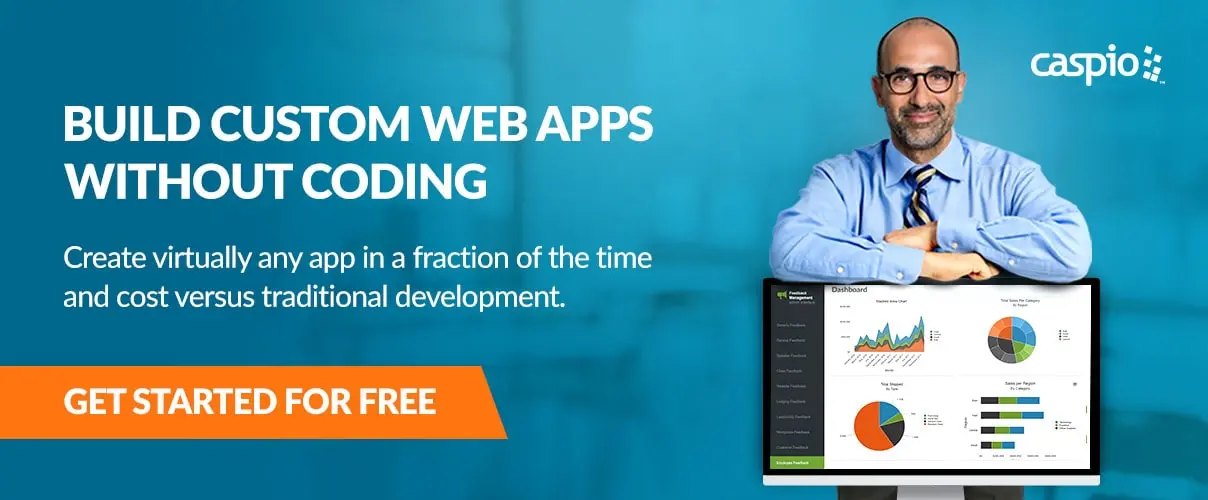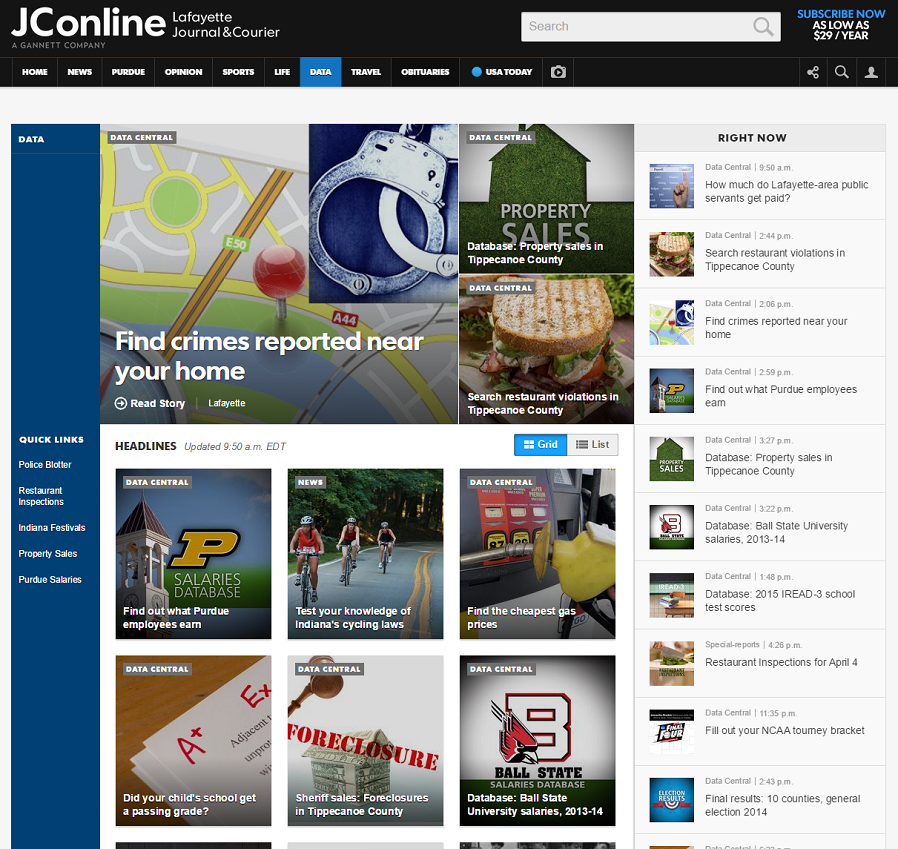7 Reasons Why Every Newsroom Needs Data Journalism
November 18, 2015

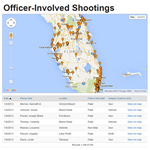 Once reserved for few data crunchers, the practice of data journalism has become an essential skill for reporters across print, web and TV news outlets. Now more than ever, newsrooms are embracing data as an instrumental digital asset.
Once reserved for few data crunchers, the practice of data journalism has become an essential skill for reporters across print, web and TV news outlets. Now more than ever, newsrooms are embracing data as an instrumental digital asset.
Caspio has served the media industry for over a decade, offering a database platform to help reporters bring data online without having to learn code. Using Caspio’s visual application builder, reporters can quickly create interactive database applications in a variety of ways to engage readers.
Here are some of the top reasons why so many newsrooms are incorporating data journalism into their daily reporting:
1. Data validates the story.
Data is as an effective reference to support and strengthen a story, especially in investigative and controversial pieces. Readers also appreciate the extra transparency if they can look up and verify the information themselves, draw conclusions, and comment based on their own perspective.
2. Searchable databases generate ongoing page views.
Searchable databases serve as a long-term digital asset for continuous page views because readers usually interact with applications several times while searching and uncovering information. Caspio-powered applications are embedded directly on the web page and reload the entire page with each interaction – generating advertising revenues with every page load. Additionally, we’ve seen many of our media customers publish a visual gallery of popular databases on a dedicated page to keep driving traffic, page views, and ad revenues.
3. Public data is more easily accessible.
The Open Government initiative has literally opened up a wealth of information for journalists to uncover new insights from public data now made available from the government in a digital format. Whether covering health inspections or government employee salaries, newsrooms can quickly convert information into interactive applications for the public to view, search, share, and submit feedback.
4. Location-based data uniquely serves your community.
Citizens care about the welfare of their community and location-based data serves them in ways that a generalized news site can’t. With capabilities such as Google Maps integration and distance search, Caspio makes it easy to build location-based applications that encourage readers to drill down into their particular city and neighborhood. For example, just last week the Daytona Beach News-Journal used Caspio to create an interactive map of all officer-involved shootings in Florida, exposing new data that was previously unavailable to the public. 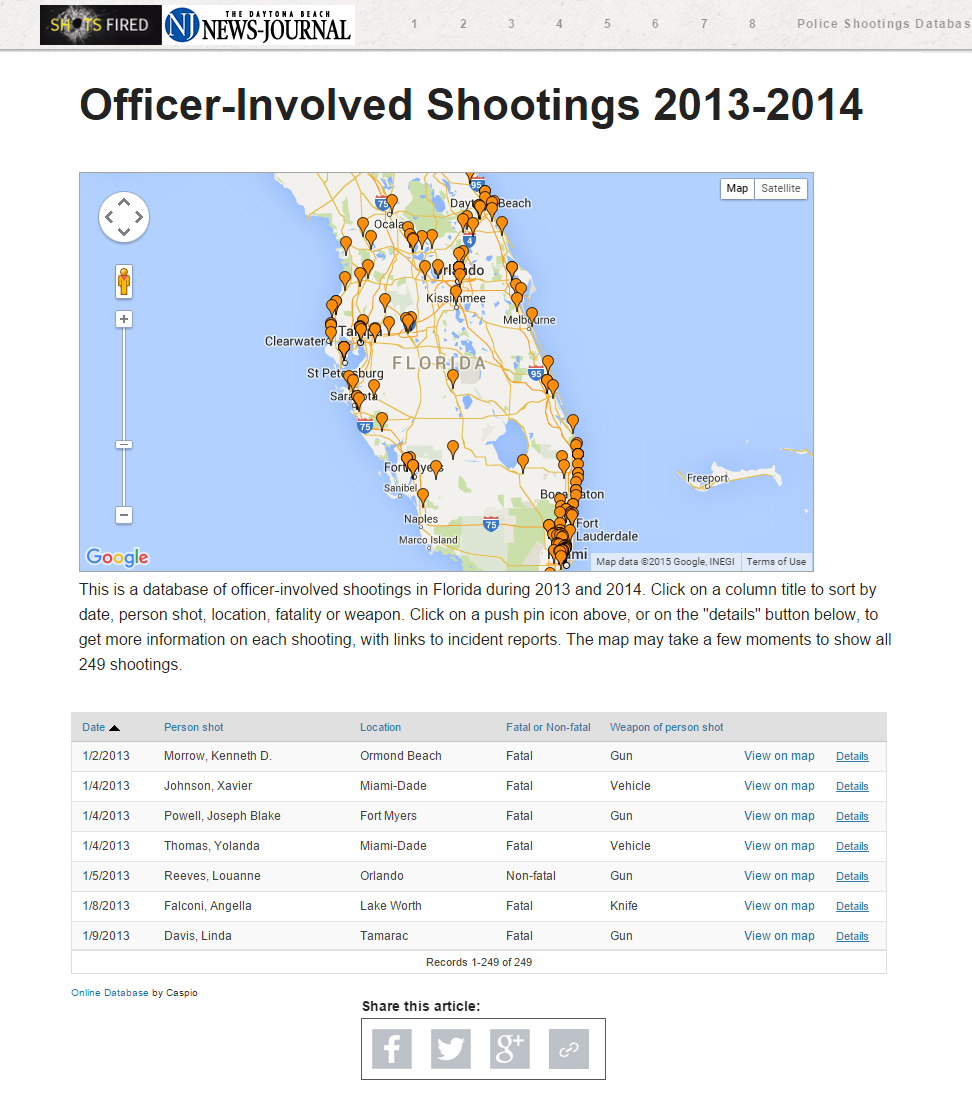
5. Readers are attracted to visual interactives.
The surplus of available content has shaped the browsing habits of readers who prefer to quickly digest and share visual content – photos, infographics, charts, maps, and other data interactives. When the Detroit Free Press, a long-time Caspio customer, reported on the impact of arson across the city, they visualized the data in a heat map to effectively show the geographic areas hit the hardest by arson.
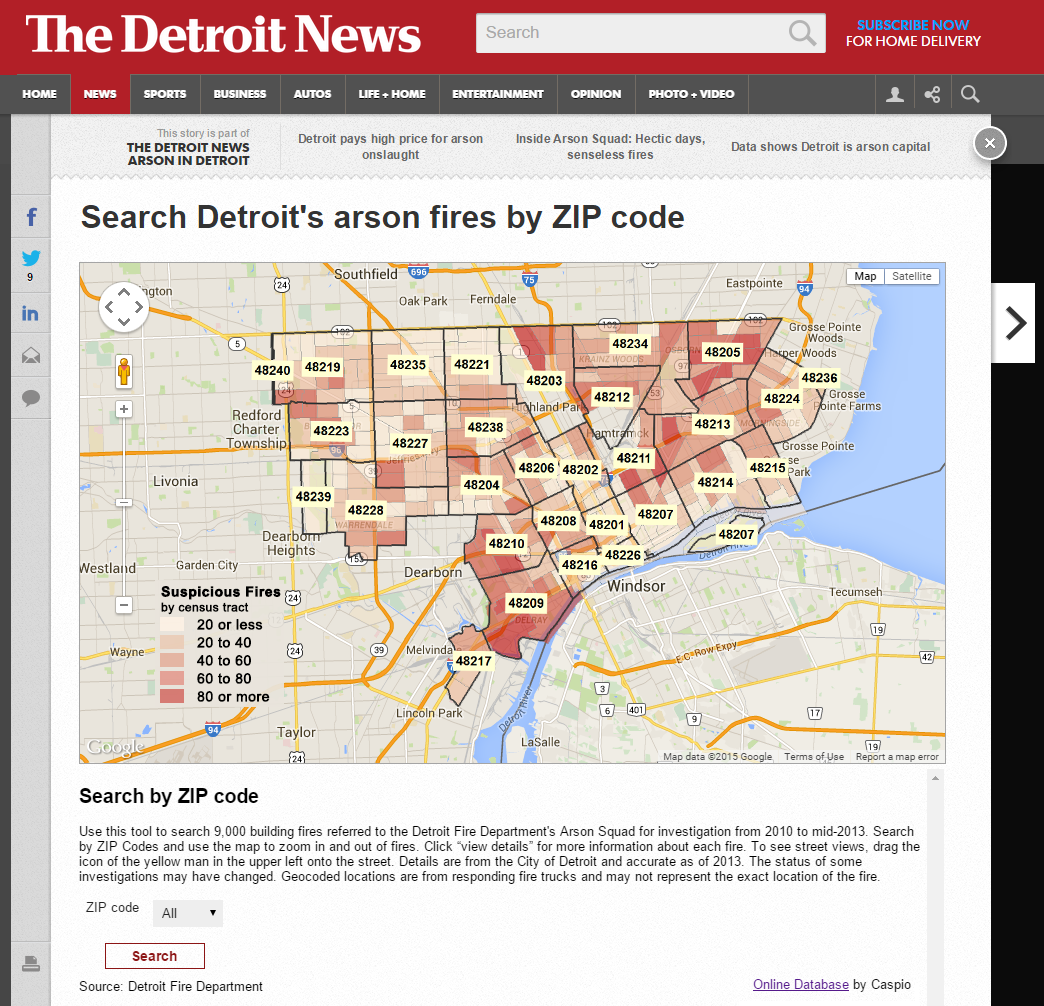
6. Data makes stories “share-worthy”.
Incorporating interesting or previously-unknown data into a public interest story encourages reader engagement and social sharing. For example, when PennLive.com posted a database of state employee pensions (some of which reached as high as $400K per year), there was an immediate traffic spike from the heated discussions across hundreds of social media shares and comments.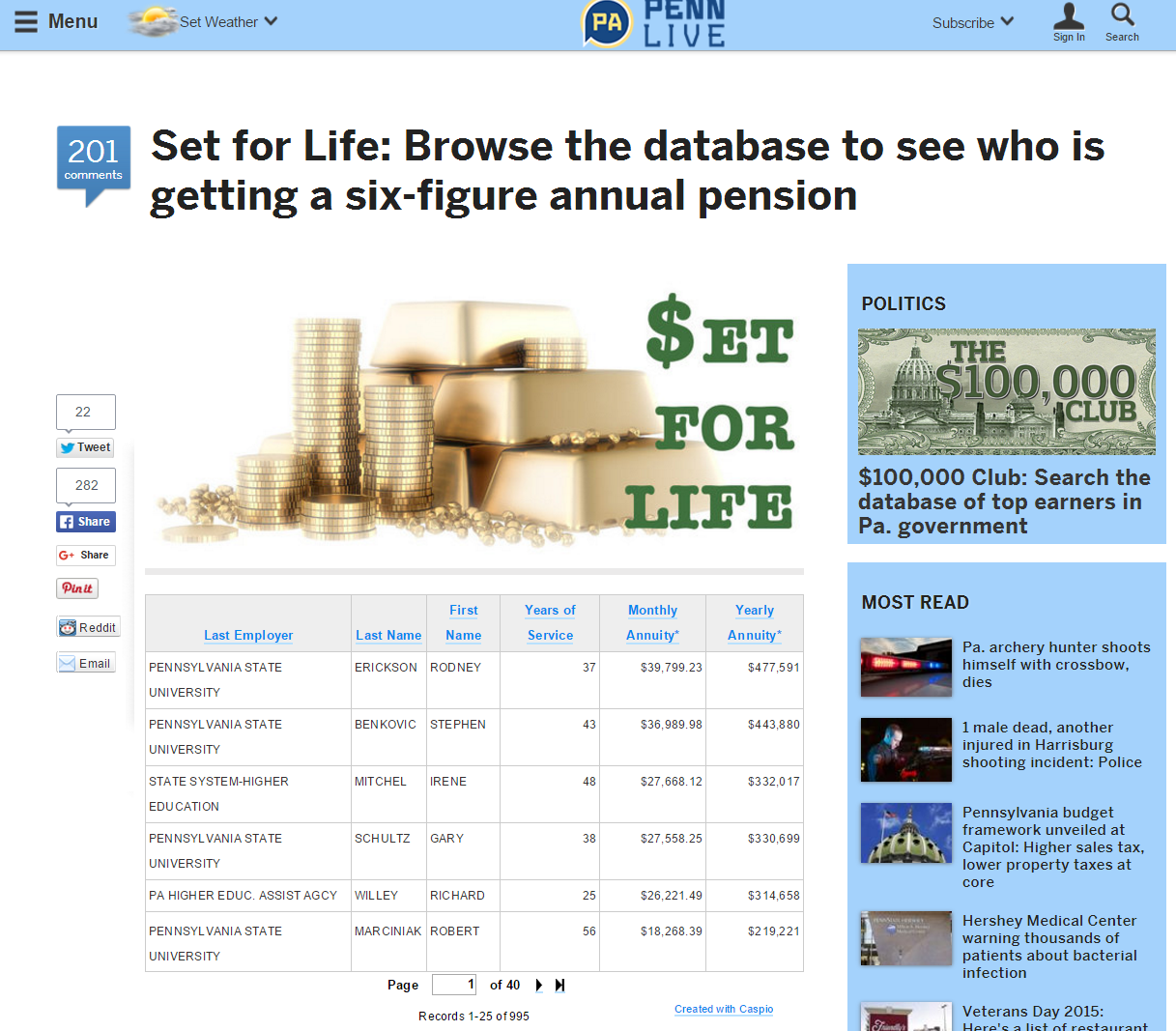
7. Data journalism is marketable.
Last but not least, data journalism helps reporters build up their career with valuable experience and technical know-how. From politics to business news, data journalism not only helps the newsroom be more effective, it makes reporters more marketable in the industry.
With extensive experience working with online news media, Caspio offers industry expertise to help editors and reporters design interactive database applications to strengthen the impact of their data journalism projects. To learn more, request a free project consultation with one of our media industry specialists.
